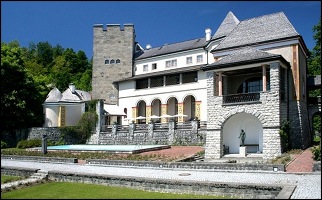International Workshop on
"Frontiers in Computational Material Science"
Ringberg Castle, Germany, July 18 - July 21, 2012
Computational material science is establishing itself as a viable complement to purely experimental and theoretical material science. The fundamental aim of computational material science is to derive understanding entirely from the basic laws of physics, i.e. quantum mechanical first principles, and increasingly also to make predictions of new properties or new materials for specific tasks. The exponential increase in available computer power together with new methodological developments are two major factors in the growing impact of this field for practical applications to real materials. Computational catalysis, computational bioscience, theoretical spectroscopy, high-throughput screening and database driven research are only a few examples of emerging and flourishing areas in computational science. However, to continue progress in this field, current challenges need to be addressed and overcome. Some pertinent questions that will be addressed in this workshop are: How accurate is the DFT functional or the theoretical spectroscopy method of choice and how to do better? How can the approach be made more computationally efficient? Can the results be validated and verified? In other words, how reliable is the employed approach/computer code? How to sample large configuration spaces? How to include realistic environments (temperature, pressure, solution, etc.)?

Important dates:
18. July 2012: Start of the conference
21. July 2012: End of the conference